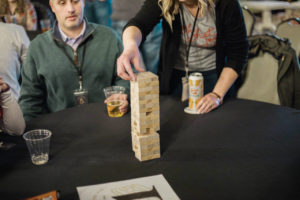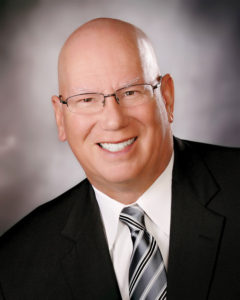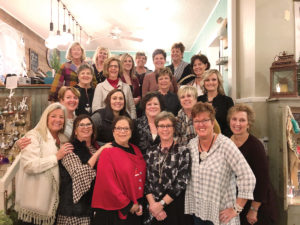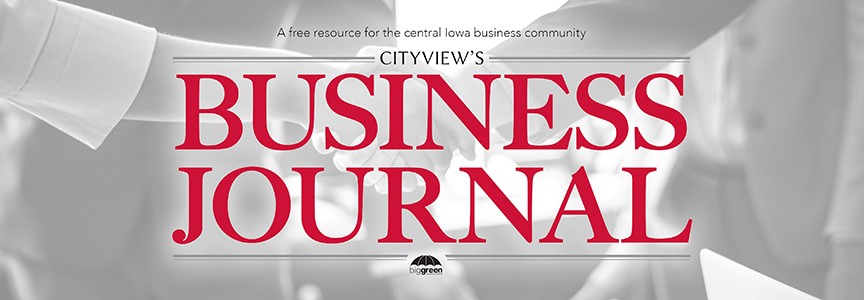Balancing the rewards and risks when offering cups of cheer to the employees of your small business
 The employees at Performance Marketing in West Des Moines like to cut loose during their end-of-year holiday party and toast each other well into the night for a job well done.
The employees at Performance Marketing in West Des Moines like to cut loose during their end-of-year holiday party and toast each other well into the night for a job well done.
Almost every employee, drinkers and nondrinkers — minus the one whose wife had a baby this year — attend the two-day celebration, which starts with an employees-only competitive event combined with food and alcohol. The next day, the team of 132 dress up in black-tie attire, socialize, eat and drink.
“It’s the highlight of the year,” says Kevin Lentz, chief executive officer of Performance Marketing and its units Shift Interactive and Blue Traffic. At those events, Lentz and others ensure employees make it safely home. “We really hammer home we will pay for an Uber there and an Uber back,” he says.
The information is included in all work communications and is announced at a townhall meeting the team has the Friday before the celebration.
“We continually stress we will pay for an Uber even if they live out of town. It’s not a big deal,” Lentz says.
Lentz says he and the other owners, partners and managers are all aware that some employees can drink too much, and that has happened before, so they make sure someone sees everyone out for the evening and arranges for rides when necessary.
“We are all aware and watchful,” he says. “We have a good time, but we are watchful.”
Business owners, big and small, often choose to celebrate their company’s accomplishments and honor their employees through an end-of-the year or holiday party. These can range in scale from a potluck luncheon to an extravagant sit-down meal with servers and entertainment.
According to the Society for Human Resource Management, 59 percent of human resources professionals recently surveyed said their company would serve alcoholic beverages at the holiday function. About half of those planned to regulate alcohol consumption in some way.
The National Federation of Independent Business’ Small Business Legal Center recommends employers who plan to include alcohol in their holiday parties be mindful of two problem areas: drunken driving and harassment.
Because of these potential risks, some employers don’t or no longer provide alcohol at their holiday functions, or they limit the amount offered. Instead, they’ve turned their holiday celebrations into contests, entertainment nights or family-friendly events in light of the potential liability alcohol can add or the discrepancy with the company’s mission or values.
For those who plan a celebration that involves alcohol, experts suggest business owners take some steps to ensure safety and limit liability.
1. Know the company’s responsibility

Socializing, alcohol and mistletoe can lead to sexual harassment and fighting, according to NFIB, a national small business advocacy organization.
NFIB’s Small Business Legal Center, which provides legal resources for small-business owners, reminds business owners that employee lawsuits can still happen from voluntary events that happen outside of the office and outside of work hours.
Business owners could be legally liable if their employees were to cause an accident, sexually harass, or verbally or physically abuse someone else.
That’s why the legal center recommends employers remind employees about the company’s anti-harassment policies — if the company doesn’t have this policy, it should have an attorney review or draft one — and that work-behavior expectations apply at the event.
Also, leave the mistletoe behind.
Iowa is one of 44 states that has a liquorliability law or dram shop law, which makes it possible to hold those who serve alcohol to an intoxicated person responsible for any damage or injury caused after that person leaves the party. Improper use of alcohol at an office holiday party also can subject the owner to workers’ compensation claims if an employee is hurt or hurts someone else, according to the U.S. Department of Labor.
Business owners or their companies are not liable under the dram shop law, but there could be other legal theories in which they could be held liable such as negligence, says Mark Wiedenfeld, an attorney with Elverson Vasey Wiedenfeld Abbott.
“We have judges and courts and juries who are much more willing to compensate victims, especially if the victims are innocent if they get hit by a drunk driver or something like that,” he says.
2. Offset the risk with liability insurance
Wiedenfeld suggests business owners speak with their insurance agent to determine if there is any insurance coverage they need for an event that will cover the business owner’s assets.
He also suggests business owners offset the risk on their own by monitoring alcohol consumption, or limiting access or eliminating it to individuals who have drank too much. Even those employers who think they won’t have a problem can’t take into account the actions of all parties involved.
“The risk you have is somewhat unknown, but look at it from the opposite side of the equation,” Wiedenfeld says. “If you have a person who is severely injured because of a drink — a drunk driver is the most common — and that injured person goes to a very aggressive, competent plaintiff’s lawyer, that lawyer is going to do everything in their power to find someone to sue for that victim.”

attorney with Elverson Vasey Wiedenfeld Abbott
He adds: “It would be folly to just say the dram shop act does not apply so you don’t have any liability. If someone gets hurt, people will cast nets far and wide to see if they can pin liability on a wealthy individual, someone who has insurance or a company who has assets.”
Lentz says he has spoken with his insurance agent to ensure there is no potential for liability at any of their events, whether it be the holiday party, dinner and drinks with clients or out-of-town travel.
“We meet with our insurance folks and let them know what our activities are going to be and what is included and are very honest with them,” he says. “They’ve helped us with the right policies.”
In the 19 years his company has been in business, Lentz says he has not had an incident or complaint of harassment, but he’s also not naïve enough to think that it can’t happen. He says his employees self-police and are respectful of each other. Most events are well attended, and he says they enjoy being around each other and having fun.
Insurance agents recommend business owners speak with their
insurance adviser, specifically the person who wrote their commercial
general liability policy — which he says all business owners should have — to learn whether their policy already
covers liquor liability or if they need a separate add-on for their event.
Some general liability policies will have limited coverage for cases such as having a drink with a client in the
office or at dinner. Others are broader and cover company parties and other functions. Any venue a business owner may book for a party will have its own liability policy that will cover the event.
A liquor liability policy specifically for an event can cost $200 to $1,500 depending upon the number of guests,
whether the business will host the event and if the business plans to purchase and serve the alcohol.
Business owners also should have employee practices liability insurance or EPLI, which they should carry at all times, insurance agents recommend. This insurance employment lawsuit such as a situation where an employee or a third-party at an event claims he or she was sexually harassed, or if an employee gets too wild at a party and was already on shaky ground with the company and is then fired but later claims wrongful termination.
Cindy Lane, the owner of Cindy’s Boutique in Valley Junction, says she hasn’t asked her insurance agent for
recommendations but has taken her own steps to hire a driver or rent a bus to transport her 16 employees for their holiday party.
“We’ve just decided to do it to keep everybody safe,” she says.
3. Set limits for consumption

executive officer and a partner at Performance Marketing in West Des Moines
It’s rare that a small-business owner would purchase a liquor liability add on to his or her insurance, but there
are ways to mitigate potential liability, insurance experts say.
If the party will be held at an on-site venue, that venue will usually have the liability, but the business owner can ask about having the business added as an additional insured to the liquor liability policy for the event.
A liquor liability policy also should protect the employer for the employee’s actions should he or she get into an accident after leaving the party. Employers can further protect themselves by limiting the amount of alcoholic drinks given with a voucher or ticket system, only providing alcohol for a limited period of time, and only
providing beer and wine.
Brian Fox, the manager and founder of Fox Brewing in West Des Moines, says businesses regularly rent out areas of his brewery for their holiday events. All of his bartenders are trained to recognize the signs of intoxication and treat party guests no differently than other patrons.
Mostly, he says he sees business owners limit their employees to one or two drinks as a cost savings and many also offer their employees transportation home.
Legal advisers say a coupon or ticket system can limit the amount consumed, but this may also send a negative message that employees can’t be trusted. Others suggested the business owner notify employees in advance that they’ll be disciplined if they misbehave at a company sponsored event, saying that the action is similar to misconduct at work.
4. Eliminate the business’ direct involvement, but keep a professional tone

Experts agree it’s best any holiday or end-of-the-year celebration take place off site and outside of regular work hours, that attendance be optional, and that no work-related discussion or activities take place.
“As much as having the office holiday party at the office can be fun, I think people generally enjoy to get out of the office and go off site with their coworkers,” Fox, the brewery owner, says.
Moving the event off site can remove any feelings that the employee is required or expected to attend, plus alleviate some of the pressures of the office. Employers should still remind employees of company policies for harassment and set expectations for behavior.
Other business experts and NFIB recommend the following:
• Hire professional servers or use the venue’s employees to serve alcoholic drinks and to refuse anyone who has had too much to drink, as well as to ensure no one under the legal drinking age is served alcohol.
• Provide plenty of food and non-alcoholic beverages to ensure people eat while drinking and that all party guests have beverage choices. Offer food again toward the last hour of the event, and stop serving alcohol an hour or more before the scheduled end-time.
• Have a cash bar, so employees purchase their own alcoholic drinks, or charge employees for drinks and donate the proceeds to a charity the company supports.
• Create a plan for how employees who have been drinking can get home, whether this is public transportation, a group shuttle or a designated driver.
• Hold off on delivering bonuses until employees are in the office.
• Provide other activities, so that drinking is not the primary activity and employees are entertained.
• Designate trusted managers or supervisors to watch for those who may have had too much to drink and need assistance getting home.
• Prohibit employees from posting photos or videos on social media without management permission.
• Enforce any workplace dress code to avoid inappropriate or suggestive clothing, and notify employees of this in advance.
• Hire off duty officers or security personnel in order to remind individuals to keep their behavior in line.
5. Offer a variety of activities
Lane, the owner of Cindy’s Boutique, invites her employees to meet at her home, and then the entire group will go somewhere to shop with gift certificates she has given them and eat dinner together. This year, she had two drivers, one a designated driver and one she hired, take the employees to Winterset for an evening of shopping and dinner.
“If we go out of town, we have a sober driver or we rent a bus,” she says.
Lane says she wants her employees to feel as though they can have a drink at dinner if they choose and that everyone is responsible.
Performance Marketing allows employees to invite a guest to the Saturday formal attire event, which includes entertainment. This year, a violinist from the Des Moines Symphony performed throughout the night. Employees toast each other, watch videos that highlight the year, and marvel at each other’s attire. Lentz wears a tuxedo, as do some of the other men; women wear formal dresses.
“It’s my favorite night of the year,” Lentz says. “I think everybody can dress up one night a year.”
Human resources experts say that when an employee’s family, especially his or her children are included, the employee is likely to act more responsibly.
The employees of G. Mig’s Fifth Street Pub gather at owner George McLear’s home for an informal house party to play video and card games and pool, watch TV on the big screen, and eat brick-oven pizza. McLear provides the food and drinks, which include alcohol, says Bruce Hollrah, the general manager of the restaurant.
McLear’s driving-age children drive home employees who have had too much to drink, or he offers them guest bedrooms to stay. Between 20 and 30 people usually attend.
“Usually people talk about it for a few weeks afterward,” Hollrah says. ♦


Addelay
Viagra Danger KewSnale buying cialis online usa BEIDOOWEWMIB Best Price On Levitra
superbeets
Hello it’s me, I am also visiting this website daily, this web page is really nice and the people are in fact sharing good thoughts.|
Gilbert Reginaldo
This is a very interesting article. Please, share more like this!